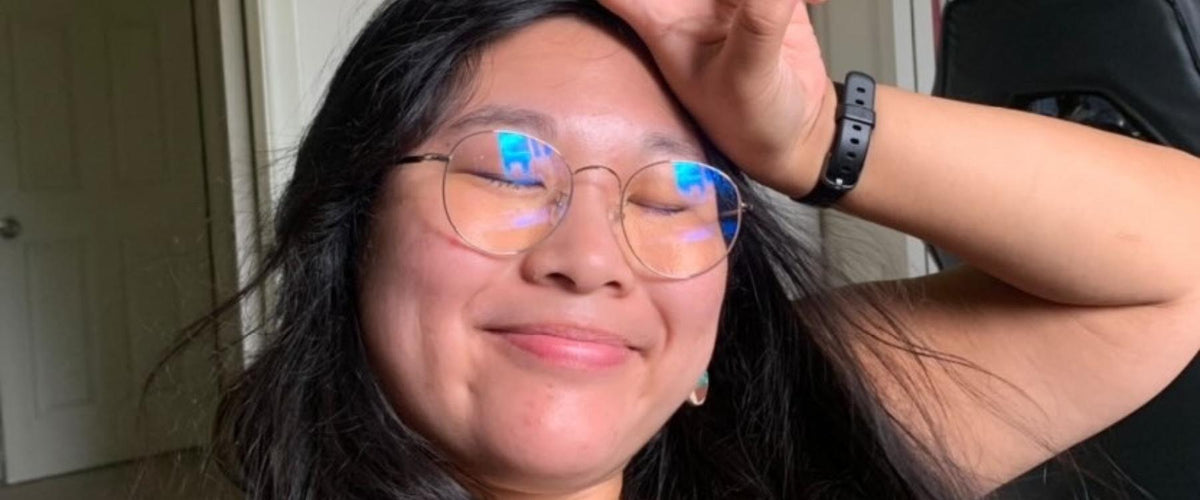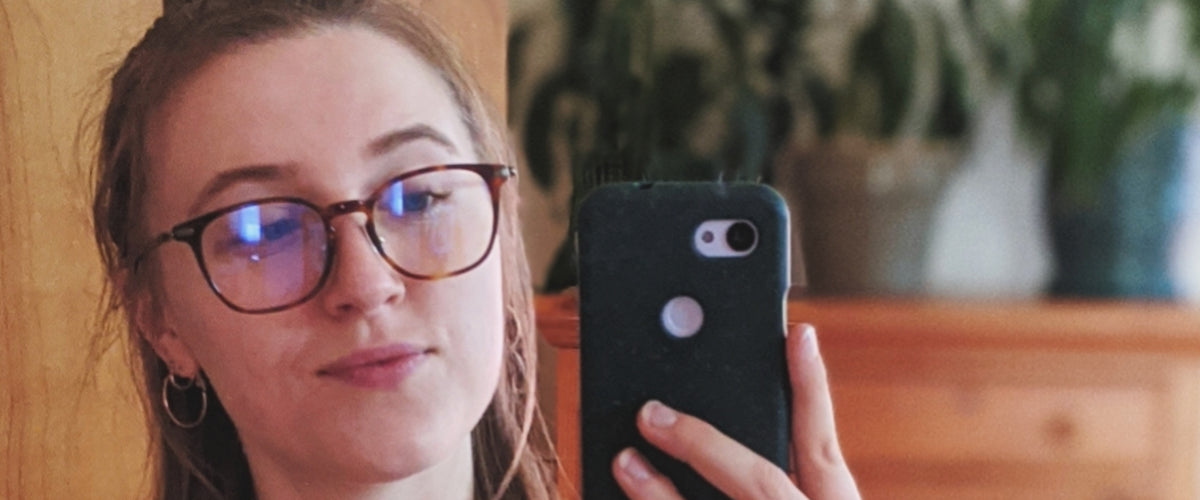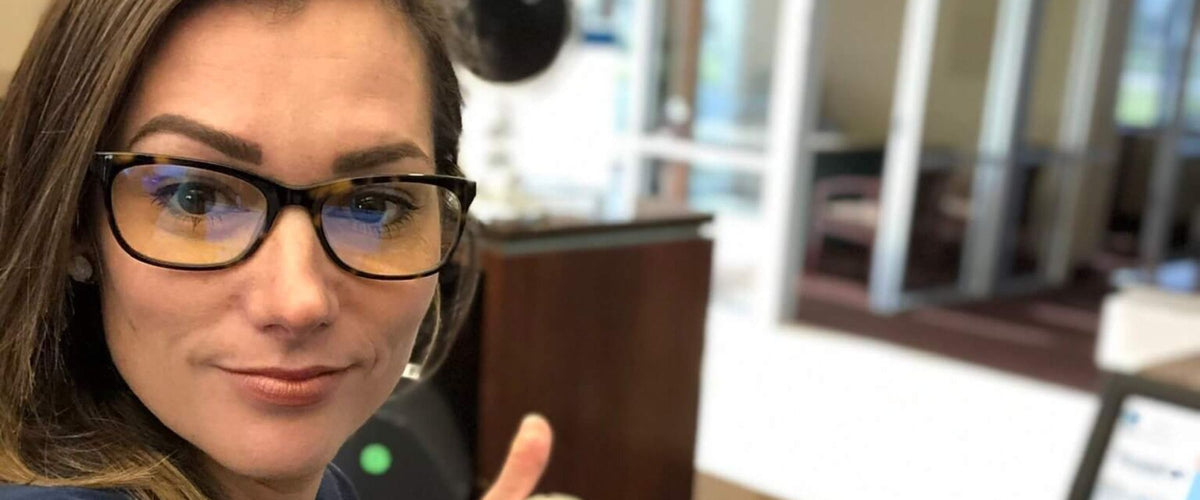Your Cart is Empty
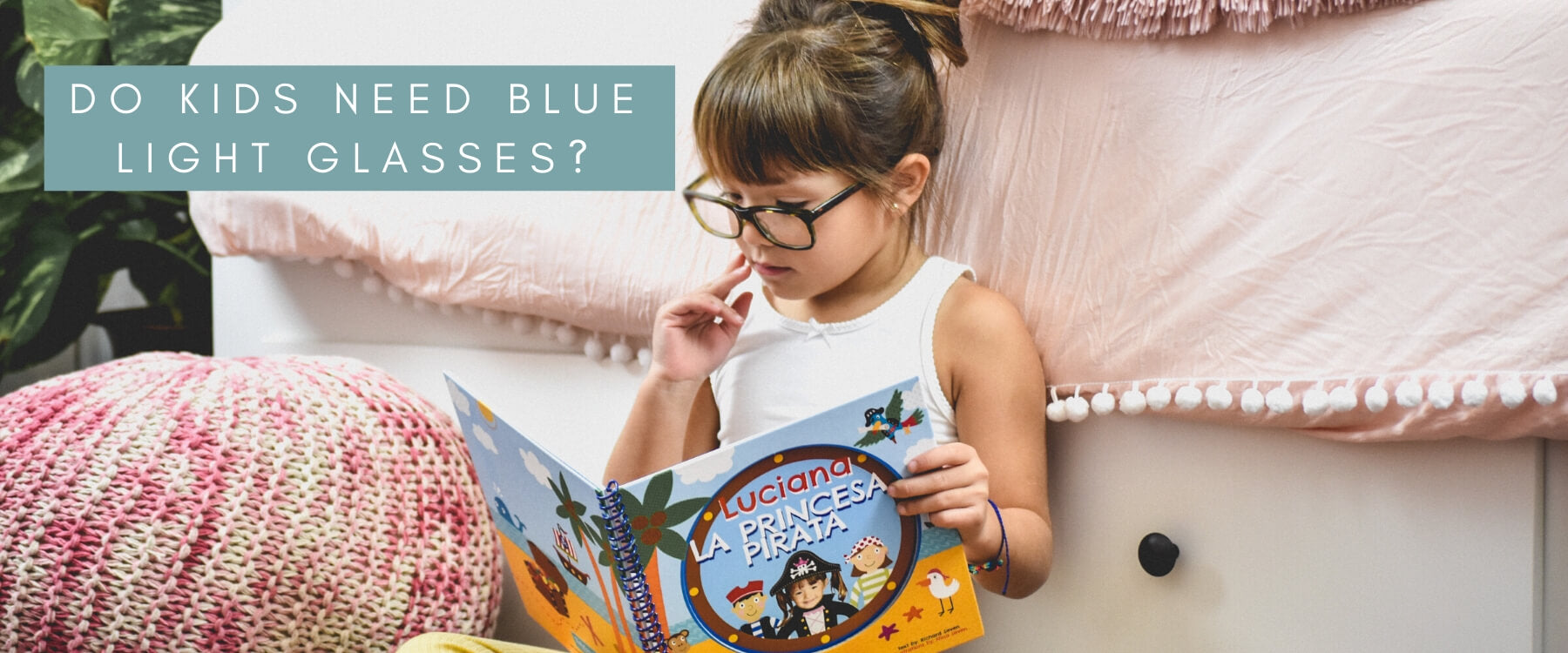
Blue light glasses have become a hot topic in today’s world and with the amount of time most of us spend in front of a screen everyday, it’s no wonder computer glasses are so popular.
We all may have different rules when it comes to technology usage in our homes, but most of our kids spend at least part of their day looking at a screen. Whether they’re playing a video game or taking classes online, if my eyes are tired at the end of the day, their eyes probably are too. Kids blue light blocking glasses are a great way to protect your eyes from continuous blue light exposure. If you have children of your own you may be wondering do kids need blue light glasses?
Sunlight, which is made up of red, orange, yellow, green, blue, indigo, and violet light, is actually our main source of blue light. Of all the visible light included in sunlight, blue light has the shortest wavelengths and the highest energy. This type of light is also found in LED light, fluorescent light bulbs, TV screens, and all of our touchscreen devices. It gets a pretty bad rap, but blue light isn’t all bad. Learn more about the positive effects of blue light in this article.
The blue light we get from the sun actually has a lot of benefits such as keeping us alert and helping us sleep better at night. But there’s also artificial blue light which is added to our smartphones and computer screens in order to imitate daylight. The amount of blue light emitted by our screens is not that significant in comparison to the blue light emitted by the sun, but the difference is we don’t spend a lot of time looking at the sun and we certainly don’t look at it at night. We do, however, spend a lot of time looking at artificial blue light and we often sit pretty close to the screens we’re staring at.
Blue light isn’t something new, but you may hear about it more often now because of the concerns around increased screen time, especially in young children. According to the American Optometric Association, eighty-three percent of children report having more than three hours of screen time everyday. That’s at least three hours a day that children are exposing their eyes to the harmful effects of blue light without any protection.
There’s no shame in admitting it, from the time our kids are old enough to walk, they’re probably spending at least part of their day looking at a screen. Whether you have a toddler who loves to watch videos on your phone, or an 8-year-old who loves playing games on his ipad, the reality is our kids are looking at screens more frequently than any other generation.
We’re not used to thinking about the fact that our kids might need blue light blocking glasses since they’re not going off to the office in the morning. Your kids may not be working at a computer for eight hours a day, but if they’re watching TV, playing video games, or even reading on a tablet, their eyes need protection too.
Even if you don’t allow your kids to have a lot of screen time at home, remember it doesn’t matter what the purpose of the screen time is, your children’s eyes still need protection. Whether they’re doing online learning, or using an Ipad in the classroom, their eyes are still susceptible to eye strain.
There are two main concerns when it comes to your kids and their exposure to blue light. The first is eye strain. When our kids are exposed to blue light from a screen for several hours a day, they’re more likely to experience eye strain, dry eyes, and irritation. The second concern is how blue light affects our children’s sleep patterns. You may be familiar with the scenario of trying to get your kids to sleep at the end of the day so you can collapse into your own bed. Take a look in this infographic on how blue light affects children.
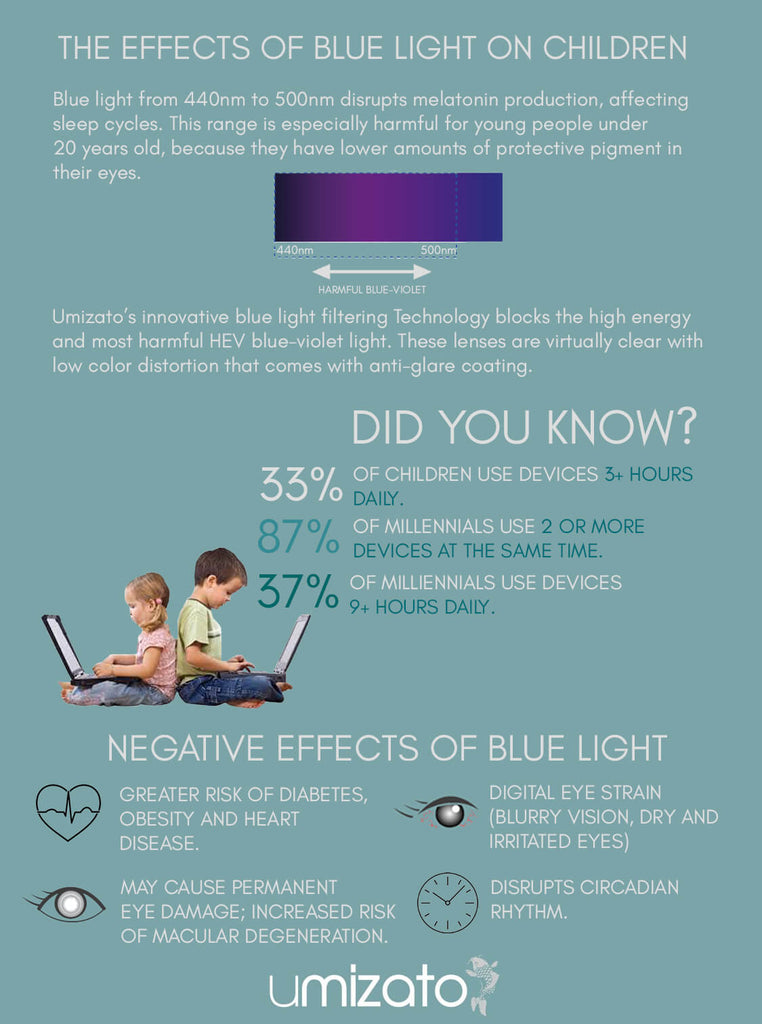
Ever noticed that your little ones seem to have a lot more trouble going to sleep if they’ve had screen time right before bed? You can thank blue light for that. Some studies have actually shown a link between blue light exposure and suppressed melatonin levels.
Blue light is most beneficial when we’re exposed to it during the day, but there’s a reason the sun goes down at night. Our kid’s bodies (and eyes!) are simply not meant to be exposed to blue light all hours of the day and night, especially not in such close proximity.
Here are some of the harmful effects of prolonged blue light exposure in children:
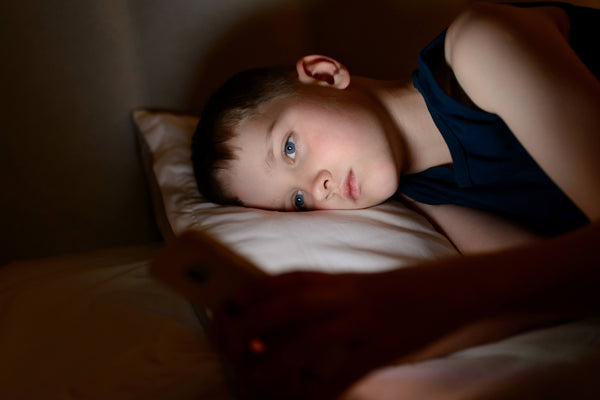
Now that you know how harmful blue light can be with continuous exposure, you may be thinking about purchasing blue light blocking glasses for your kids. Before you invest in a pair, here are some signs your child may need blue light glasses:
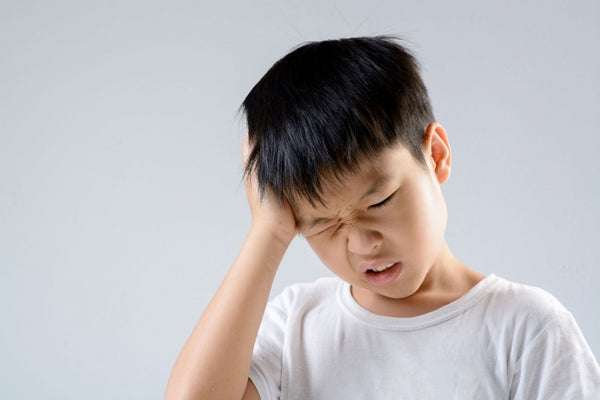
If your child is experiencing any of these symptoms, they may benefit from wearing blue light blocking glasses during screen time.
If you’re concerned about your child’s exposure to blue light, the best way to protect their eyes is with blue light blocking glasses. Although blue light glasses for kids can be purchased with prescription lenses, they are also available without a prescription for children without any vision problems.
Blue light glasses for kids contain a filter that reduces your child’s exposure to blue light when looking at a device. These glasses don’t filter out all blue light, but they can reduce your child’s exposure to blue light by at least eighty percent, keeping your child from experiencing many of the harmful effects of blue light exposure.

If your children typically have screen time later in the day, wearing blue light blocking glasses can help reduce the effect on their circadian rhythm. The circadian rhythm is a natural process that allows our bodies to fall asleep at night and wake up in the morning. Blue light exposure can disrupt this process, causing your child to experience insomnia, or tiredness during the day. Since your child’s body is preparing to go to sleep before they’re even in bed, their sleep cycles will be most affected by blue light right before bed. If you’re using blue light glasses to avoid any changes to your child’s sleep pattern, it’s most effective for them to wear the glasses 1-2 hours before bedtime.
There are plenty of ways to help your kids stay safe during screen time, and getting blue light glasses certainly isn’t a replacement for teaching your kids to be responsible and limiting their time with screens. However, if your kids are using screens at any point during the day, it’s important to keep their eyes protected.
Blue light blocking glasses for kids are becoming more common because many parents are concerned about their children’s exposure to blue light. Our main exposure to blue light comes from sunlight, and there are many benefits to blue light exposure during the day. However, man-made blue light is found in devices such as tablets, smartphones, and computer screens.
Prolonged exposure to blue light, especially at night time, has many harmful effects such as eye strain, dry eyes, irritation, headaches, and insomnia. Our children are exposed to screens more often than any other generation, and although we have yet to see the long term effects, we can already see some of the short term effects happening in our homes.
The best way to protect our kids against these harmful effects is with blue light glasses for kids. With a special filter that reduces exposure by up to eighty percent, blue light blocking glasses are available in both prescription and non-prescription pairs.
Blue light glasses aren’t the only way to reduce exposure to blue light, but they’re the simplest and most convenient way to protect our children’s eyes. If you’re concerned about the effect prolonged screen time has on your kids, you’re not alone.
As much as we try to limit their exposure to devices, we live in a world where technology is often a necessity. With many schools implementing devices into their learning process, it’s hard to keep our kids away from screens completely. As parents, we want the best for our kids, and blue light blocking glasses are the best way to ensure they use technology in a healthy way.
Learn more about blue light in our article on 10 Signs You Need Blue Light Glasses.
Written by Amy Williams

Comments will be approved before showing up.
